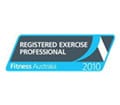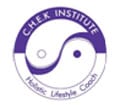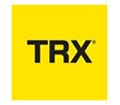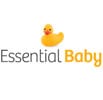Iodine – With all the extensive information and social media commentary, I see minimal information or awareness on one of this most important nutritional minerals and what it can do for your health and body.
For this exact reason, we have decided to dedicate this article to iodine, and answer questions around it, regarding what it is, what side effects may be experienced with deficiencies, and most importantly – how you can get enough of it.
What Is Iodine?
Iodine is a chemical element that is a non-metallic solid under standard conditions. It’s a vital component of thyroid hormones, which is the mineral’s most essential and well-understood function.
Your thyroid gland creates the thyroid hormones thyroxine and triiodothyronine, both of which contain iodide – a form of iodine. In layman’s terms, we need iodine to preserve and sustain the wellbeing of the thyroid, which is the factory room for almost all of our hormones.
Iodine Deficiency
Much like any other nutrient that the body needs to sustain healthy functioning, the absence of iodine in sufficient amounts has its side effects. And well, quite frankly, those are NOT something to ignore…
The worst thing that could happen to you when your body doesn’t receive enough iodine primarily implies possible defects in thyroid hormone production. If your levels of iodine are low/deficient, you could develop several conditions, such as:
- Hypothyroidism
- Goiter
- Congenital hypothyroidism.
And yes, that doesn’t really sound good, but you can easily prevent it – The easiest way is to take example from the nutritional habits of healthy cultures, such as…
The Japanese!
As of 2011, the World Health Organization has established that Japanese people have a higher living and health efficiency than any other nation globally, at an average lifespan of around 77.7 years.
It is a well-known fact that the Japanese people have conducted a strictly healthy and organic way of living for thousands of years. But did you know that iodine is a crucial ingredient for them, as well?
In 1963 an official norm for iodine consumption in Japan was created, and it is from 13.5 up to 50 milligrams. This is 70 – 330 times higher than the amount that the World Health Organization recommends.
Interestingly, Japanese immigrants who stop receiving this amount of iodine when living abroad start to develop the same diseases as the local population and age rapidly. Professor Makoto Suzuki conducts a 40-year-old study of the differences in health and life span between the natives on Okinawa and the Okinawans that migrated to Brazil. The research shows that the 20 thousand Okinawans who lived in Brazil live roughly 17 years less than the ones back home.
You may be wondering why Prof. Suzuki chose the island of Okinawa? The reason is simple: It’s the place that has the highest lifespan in the whole world.
Not only that, but 90% of deaths on the island are from natural causes, not the result of a disease.
Which foods are Iodine Rich?
There are plenty of foods rich in iodine which give the average person a healthy amount of the mineral.
Just to name a few:
- Seaweed
- Cod
- Seafood
- Sea-salt
These are the most common iodine sources in Japanese food culture, but if you don’t fancy seafood all that much, try these:
- Dairy products
- Nuts
- Eggs
- Prunes
The most well-known food that is enriched with iodine is salt, which is also a vital mineral that the body tightly regulates. Much like anything else, salt can be harmful if abused, but rest assured – If you tend to eat many salty foods, your body will eliminate the excess iodine/sodium.
Iodine is an essential nutrient for human health, but it can also be dangerous in excess. The current recommended daily intake (RDI) of iodine is 150 mcg per day for most adults
Cameron Corish has been caring and achieving results for the local Wishart, Mansfield and Mt Gravatt community for over 14 years. Together with the Core Health Coaching Team, he takes a multi-disciplined and holistic approach to health and fitness addressing the physical, mental and emotional aspects of one’s health.
Ready to feel and look your best? Book a time for a FREE chat and see how we can make a difference in your life. Book here calendly.com/corehealthcoaching or email Cameron at cameron@corehealthcoaching.com.au















Speak Your Mind